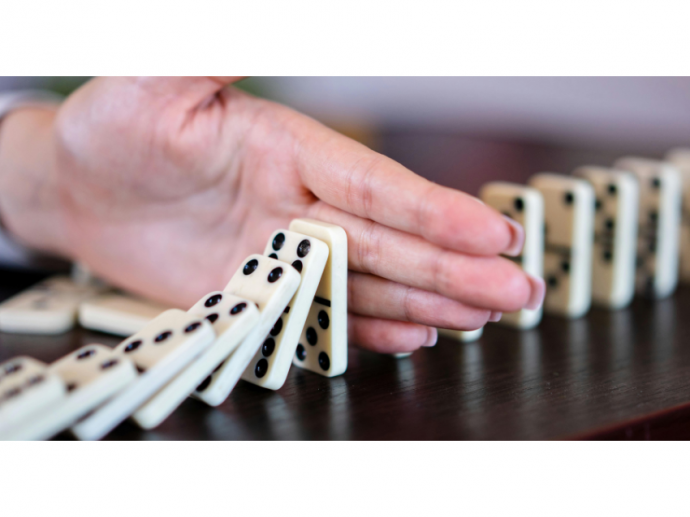Categories more
- Adventures (17)
- Arts / Collectables (15)
- Automotive (37)
- Aviation (11)
- Bath, Body, & Health (77)
- Children (6)
- Cigars / Spirits (32)
- Cuisine (16)
- Design/Architecture (22)
- Electronics (13)
- Entertainment (4)
- Event Planning (5)
- Fashion (46)
- Finance (9)
- Gifts / Misc (6)
- Home Decor (45)
- Jewelry (42)
- Pets (3)
- Philanthropy (1)
- Real Estate (16)
- Services (23)
- Sports / Golf (14)
- Vacation / Travel (59)
- Watches / Pens (14)
- Wines / Vines (24)
- Yachting / Boating (17)
Five Common Ways ADHD Impacts Relationships and How to Overcome Them
Published
11/17/2025Looking at this relationship with an ADHD partner honestly, it's not always going to be easy. It will likely be frustrating when this person forgets important things more than once. There will probably even be times when it feels like you are the only one keeping everything in the relationship on track and in order, but there shouldn't be a problem with that, those are entirely valid feelings.
On the other hand, there are very few people that have the positive things that your partner has to offer, and those are often overlooked. It isn't just random chaos to be disorganized. They have so much spontaneity, creativity, talent, and a strong ability to hyper-focus on things that genuinely interest them.
1. Communication Breakdown
ADHD can make communication tricky. Your partner might miss subtle hints or non-verbal signals. They could seem distracted or jump between topics in a way that feels frustrating. But here’s the thing: it’s not intentional. Their brain is processing multiple streams at once, so maintaining focus on a single conversation thread is genuinely harder for them.
The ADHD partner then feels criticized and withdraws further. Partners must recognize that these intense emotions are neurological, not personal attacks. Setting specific discussion times when both partners are calm breaks this destructive pattern.
The solution isn’t to get annoyed or try to force them to “just pay attention.” It’s to be direct and clear about what you need. Instead of hinting or expecting them to read your mind, say exactly what you want. This reduces misunderstandings and creates a safer space for both of you.
2. Emotional Volatility
Though some relationships demonstrate emotional imbalance, it seems to me that relationships involving ADHD are the ones that demonstrate potholes of emotional imbalance the most. Your partner may go from calm to upset over something that seems light to some, and then moments later, be absolutely fine. Although this seems like emotional control of manipulation, it is nerve controlling emotional volatility.
Due to the emotional glue that binds these couples together, some really find it hard to as they can feel safe or secure in this emotional rollercoaster. You may feel like you are always walking on fragile glass as some trigger some form of emotional reaction. The most intelligent solution is to embrace the knowledge that emotional response systems are not as deeply ingrained for the players in the main system, as they are for the active emotional systems.
Actually, grounding techniques can help immensely in times of emotional high. Pausing before reacting, stating the emotion, or choosing to sit together without speaking, can really help you both feel less stressed in the moment, allowing you to get through some of those tough situations without falling apart. Remaining connected in high emotional situations is tough, but these strategies make it a lot easier.
3. Challenges in Relationships with ADHD: Forgetfulness/ Procrastination
Forgetfulness and procrastination are commonplace in relationships with ADHD. It's not like it's a surprise to those in these situations. It's also no surprise to their partners that the ADHD partner seems to be the 1 with the ADHD. Their partner may start panicking and hitting the pressure button with 1 of those adrenaline rushing, 7000 lists. Everyone is stressed. It seems this sudden pressure to get it all done to avoid the panic is simply a cycle that they have no control or ability to even influence.
What really works is utilizing the Liven app, which is designed to fit how ADHD brains operate, along with family strategies that help break tasks into smaller manageable chunks and support real-time feedback.
4. Impulsivity
Impulsiveness can be difficult when it comes to a relationship. It can be frustrating when a partner makes decisions quickly without thinking it through. Getting overheated is an emotional response and can easily escalate without a release.
There is true help when a reaction is without a response rather than a prolonged explosion. Putting a name to an emotion, rather than ignoring it, and sitting quietly to break an overstimulated response can greatly improve a peer's emotional processing and the situation in total. Use of these tools seems to strengthen an emotional connection during a time of overstimulation.
5. Emotional Regulation
ADHD emotional regulation challenges can be common in adult relationships. Sometimes, this sees an individual transition from calm to anger, before the situation quickly resolves. It can be easy to misinterpret this as manipulation, when in fact it is a result of how the nervous system modulates emotional defense.
The degree of emotional turbulence may result in a degree of disconnection and dissatisfaction. When things get all tense and stuff, grounding techniques really work. Taking a second before jumping in, saying anger, fear, etc. out loud, or just sitting in silence all help destress. These things can really help you stay together, even when big feelings win.
Real-Life Strategies That Work
Many couples find that small changes make a big difference. For example, one couple started using a shared digital calendar to keep track of important dates and tasks. This helped reduce the stress of forgotten appointments and last-minute scrambles.
Another family found that regular family meetings created a safe space for everyone to voice their concerns. They discovered that simply having a dedicated time to talk prevented a lot of misunderstandings and built stronger connections.
Some people use the Liven app to track their moods and habits, which helps them recognize patterns and triggers. This kind of self-awareness can be incredibly valuable in managing ADHD symptoms and improving communication.
Conclusion
While ADHD can challenge relationships, it shouldn't stifle them, either. The effects of ADHD on one partner, as well as being forthright with your needs, can go a long way in creating a tiered, adaptable relationship with the aid of the Liven app.
The aim is not to reach an ideal of zero conflict or a stress-free relationship. The goal is to create a partnership characterized by the ability to hear and support one another in a connected way, even when things get chaotic and overwhelming. That is the hallmark of the most resilient partnerships.
















